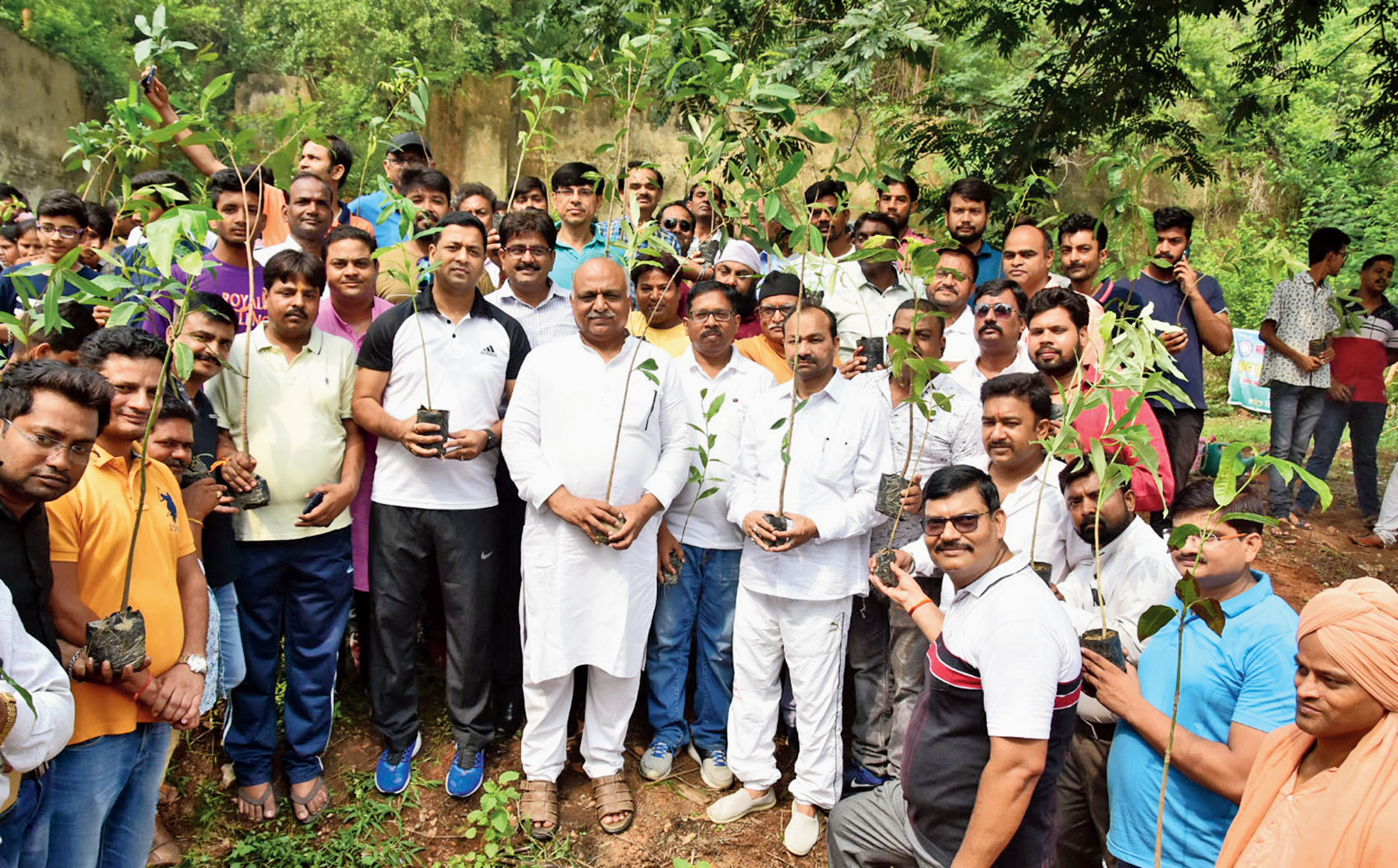Social outfit Bharatiya Yuva Seva Vahini on Sunday launched a massive green drive from Dhangi hills here, planting over 600 neem and peepal saplings.
Dhanbad mayor Chandrashekhar Agarwal, SSP Kishore Kaushal, divisional forest officer Vijay Lakra and municipal commissioner Chandramohan Kashyap were among the notables present at the drive.
The outfit plans to plant 2 lakh saplings in one month across the district, especially colliery areas with open-cast coal mines, to reduce air pollution. In five years, it hopes to plant 2.8 crore saplings in the district, teaming up with schools and other social outfits.
“We are concerned over air pollution, especially when a recent report of Green Peace India for 2017 indicated Jharia was the most polluted among 313 towns and cities of India,” said Rupesh Sinha, president of the outfit.
For bulk planting drive this monsoon, they would adopt the south Indian method of scattering earth balls or seed balls as they were called, he said.
“Laddoos (balls) of soil, manure and seedlings are made and scattered on the ground. Rains help the seedlings germinate,” he said. “No extra effort is needed for digging.”
Sinha added: “We will protect saplings with barricades, but more important, we will involve people, especially schoolchildren, as tree guardians.” General secretary of the outfit Diven Tiwary agreed it was important to involve children in planting drives to teach them to value greenery.
On Monday, the team will go to Barmasia area of Dhanbad to plant saplings. On Tuesday, 450 members of the outfit will schedule the details of the month-long planting drive.
According to a Green Peace India report of 2017, released on January 29 this year, Jharia is the most polluted among 313 Indian town and cities, with PM10 (particulate matter up to 10 micrometres in size) level at 295 mg per cubic meter.
Dhanbad, with PM10 level at 238 microgram per cubic meter, is the ninth most polluted, while Sindri, with PM10 level of 158 mg per cubic meter, is 37th.











